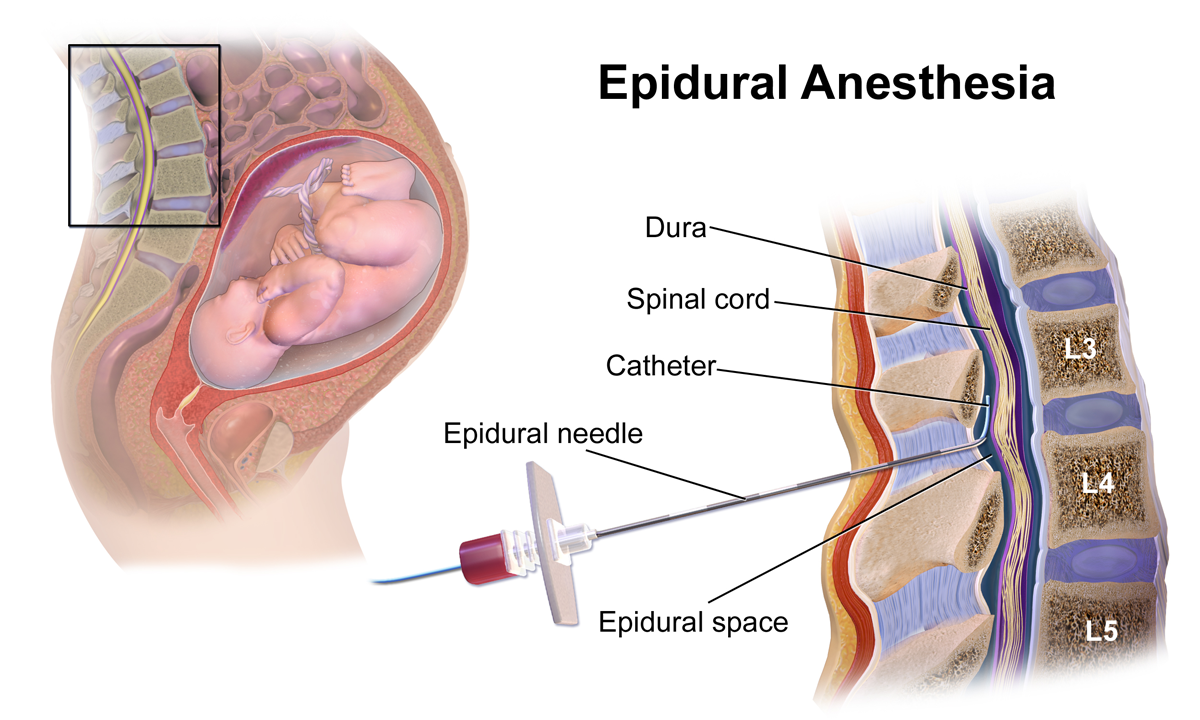As an expectant mother, you’re likely researching various pain management options for childbirth. One popular choice is an epidural, but misconceptions surround this procedure. Let’s delve into the facts and debunk common myths to help you make informed decisions about your labor experience.
What is an Epidural?
An epidural is a regional anesthesia injected into the epidural space surrounding the spinal cord, numbing the lower back and legs. This pain relief method is commonly used during labor, helping women cope with contractions and delivery. The procedure involves inserting a thin catheter into the epidural space, allowing medication to be administered as needed.

Myths About Epidural
1. Epidurals are Always Immediate
Reality: Epidurals can take 15-30 minutes to administer and may not provide instant relief. Factors like labor progression, epidural dosage, and individual response influence effectiveness. It’s essential to discuss timing and expectations with your healthcare provider.
2. Epidurals Guarantee Pain-Free Labor
Reality: While epidurals significantly reduce pain, some women may still experience discomfort, pressure, or contractions. Individual responses vary, and factors like cervical dilation, fetal position, and labor intensity impact pain perception.
3. Epidurals Interfere with Breastfeeding
Reality: Research shows no significant link between epidurals and breastfeeding difficulties. Epidurals can help reduce stress, promoting a smoother breastfeeding experience. A calm and relaxed mother is more likely to initiate successful breastfeeding.
4. Epidurals Increase Risk of Cesarean Section
Reality: Studies indicate no direct correlation between epidurals and cesarean sections. However, factors like fetal distress, labor complications, or pre-existing conditions may necessitate a C-section. Your healthcare provider will monitor progress and make decisions based on individual circumstances.
5. Epidurals Cause Permanent Nerve Damage
Reality: Temporary numbness or tingling is possible, but permanent nerve damage is infrequent (less than 1 in 100,000). Epidurals are generally safe when administered by experienced anesthesiologists.
Facts About Epidural
1. Epidurals Offer Flexible Pain Management
Epidurals can be adjusted or removed as needed, allowing women to experience different levels of pain relief throughout labor. This flexibility enables mothers to participate in decision-making and adapt to changing circumstances.
2. Epidurals Support Natural Childbirth
Epidurals can facilitate a more comfortable, natural childbirth experience by reducing anxiety and pain. This allows women to focus on the birth process, connect with their bodies, and cherish the moment.
3. Epidurals Have Low Risk of Complications
Serious complications, such as allergic reactions or respiratory issues, are rare. Epidurals are carefully monitored, and skilled healthcare professionals mitigate potential risks.
4. Epidurals Can Enhance Labor Experience
By alleviating pain, epidurals enable women to focus on the birth experience, participate in decision-making, and cherish the moment. A positive labor experience can have lasting emotional benefits.
5. Epidurals Are Not a Sign of Weakness
Choosing an epidural is a personal decision, not a reflection of a mother’s strength or resilience. Prioritize your well-being and make informed choices that align with your values and preferences.
Epidurals are a safe and effective pain management option for childbirth. Expectant mothers can make informed decisions about their labor experience by understanding the facts and dispelling myths.


No Comments